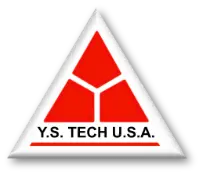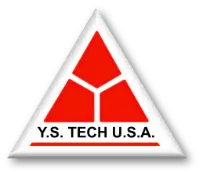Cooling the future: how advanced thermal solutions from YS Tech are empowering NPI engineers to deliver sustainable energy in alternative energy projects
What if your solar projects could last longer, operate closer to spec, and help your customers hit carbon goals, all because you engineered in better thermal management from day one? It is a twist in the clean energy narrative you might not expect, but it is a critical chapter for NPI engineers balancing cost, reliability, and sustainability.
When solar panels heat up, their efficiency drops. For every degree Celsius above the optimal point, output can drop by up to 0.5 percent. Over a typical summer, those hidden thermal losses can turn into real headaches during validation and deployment phases. So why aren’t more NPI engineers factoring in thermal design from the outset? And how can you ensure your solar designs deliver reliable, sustainable performance in the field?
Today, you will learn how advanced thermal management, especially with YS Tech’s DC axial fans, helps you meet performance targets, extend lifespan, and reduce risks before SOP. This is not just lab theory; it is practical engineering that impacts BOM cost, customer satisfaction, and sustainability goals.
Here is what you will discover:
-
The basics: Why heat silently undermines solar panel performance and what thermal management means in the design phase
-
The solution: How YS Tech’s advanced DC axial fans and heat sinks help you manage thermal challenges in your designs
-
The impact: Real benefits in efficiency, warranty performance, and sustainability for your projects
-
What’s next: Key takeaways on integrating thermal management into your NPI workflows
Are you curious how something as straightforward as a fan can de-risk your solar NPI projects? Wondering what design-level tweaks can save you from field failures and callbacks? Let us start at the beginning.
The basics: why thermal management matters in your designs
Imagine it is a hot day on your customer’s site, and their panels are working hard. While sunlight powers the panels, it also heats them up. Just like a processor throttles under heat, solar panels degrade in efficiency as temperatures climb.
Heat is more than an annoyance; it is a design risk. Each degree above the optimal point can reduce output by 0.5 percent, meaning a 20-degree increase can sap 10 percent of performance. That is the difference between a project hitting ROI forecasts and one triggering support calls.
Thermal management is your engineered approach to controlling this risk, using components like fans and heat sinks to remove excess heat and maintain system stability. It is the difference between designs that struggle in the field and designs that deliver consistent, reliable output.
How YS Tech’s DC axial fans de-risk thermal challenges
YS Tech, headquartered in Huntington Beach, California, offers advanced cooling solutions tailored for alternative energy. Their DC axial fans and heat sinks are designed to optimize airflow while maintaining low power consumption and minimal noise, aligning with your system efficiency goals.
These DC axial fans actively draw cooler air across the panels, displacing hot air and keeping the system within its ideal thermal envelope. Unlike generic fans, YS Tech’s models are engineered for continuous operation in harsh outdoor environments, ensuring reliability without compromising system energy budgets.
Heat sinks complement the fans, increasing surface area to dissipate heat from critical components efficiently, much like a processor’s heat sink, but adapted for solar inverters and power electronics.
Real-world example:
A solar farm in Arizona saw output drop by 12 percent during a heatwave, risking performance targets and contract penalties. After integrating YS Tech’s DC axial fans, the site stabilized output despite high ambient temperatures, maintaining revenue projections and protecting equipment longevity.
Advanced insights: why NPI engineers should prioritize thermal design
It is tempting to think scaling output is only about more panels or larger arrays. In reality, better thermal design often delivers greater ROI and system stability.
Efficiency: Thermal management helps panels operate closer to nameplate capacity, maximizing electricity output without additional hardware.
Longevity: Overheating accelerates wear on power electronics and panels. Thermal control can double component lifespan, reducing warranty risks and field service costs.
Sustainability: YS Tech’s energy-efficient cooling solutions ensure your systems remain truly green by minimizing additional power draw for thermal management.
Economic value: Fewer failures, reduced maintenance, and consistent output translate into stronger business cases during customer pitches and lower lifetime costs for your projects.
Key takeaways for your NPI process
-
Incorporate efficient thermal management using DC axial fans to ensure your designs maintain output and reliability under real-world conditions
-
Factor in thermal risk early to maximize system ROI and performance
-
Use advanced heat sinks and fans from YS Tech to create cost-effective, sustainable, and reliable clean energy solutions
-
Thermal control during design stages reduces customer downtime and extends system lifespan, aligning with ESG goals
As clean energy adoption accelerates, managing heat in your designs will define your projects’ success in the field. Are you ready to lead your projects with thermal resilience built in from NPI to deployment?
FAQ: Thermal management for NPI engineers using YS Tech DC axial fans
Q: Why is heat management critical in solar NPI projects?
A: Thermal management ensures panels operate efficiently, meeting performance targets and reducing risks of warranty claims and customer dissatisfaction.
Q: How do YS Tech DC axial fans benefit my designs?
A: They maintain ideal operating temperatures, reducing energy losses and enhancing reliability under real-world conditions.
Q: What role do heat sinks play alongside fans?
A: Heat sinks increase heat dissipation from key components, supporting fans in maintaining optimal thermal profiles.
Q: Are these solutions sustainable?
A: Yes, YS Tech’s fans are energy-efficient and quiet, supporting ESG goals without sacrificing system performance.
Q: What ROI can I expect by integrating these thermal solutions?
A: Lower operational costs, higher efficiency, and reduced field failures, all improving your project’s total value.
A: Contact YS Tech for engineering support to select and size fans and heat sinks during your design validation phase.



